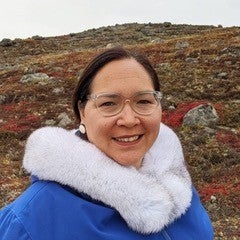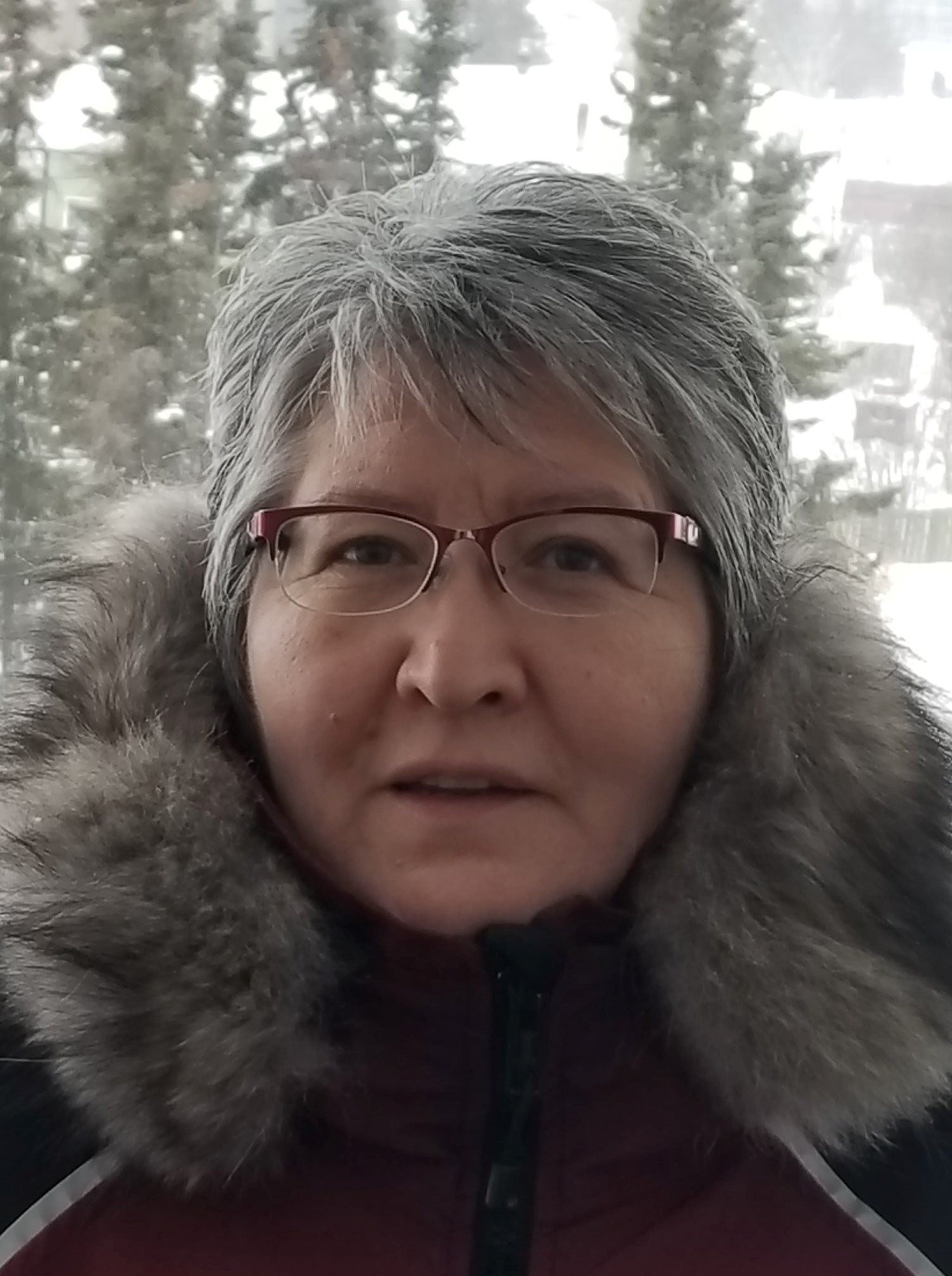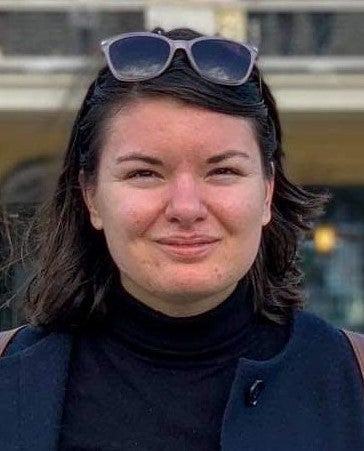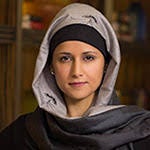DSFG understands the importance of ensuring the Gender Based Analysis Plus (GBA+) toolkit is included in our research and activities. In Canada, gender mainstreaming in policymaking is called GBA+. This is an analytical tool used to help advance gender equality in Canada by examining “how diverse groups of women, men and non-binary people may experience policies, programs, and initiatives” (Status of Women, 2017). This is not just about gender, but a multiplicity of identities that can shape our experience, perspective, and lived realities. Hence GBA+ includes “race, ethnicity, religion, age, and mental or physical disability” (Status of Women, 2017).
At DSFG, we have been exploring different ways to better ensure GBA+ is integrated in our work, from using this toolkit at the begi

nning phases of research design to publications, but we are always seeking ways to improve this. While our interest is in the application to Defence and Security, the toolkit can be used in many fields from public health, economics, to sociology.
We are excited to be collaborating with other groups who are invested in GBA+ as well, including the Centre for Social Innovation and Community Engagement in Military Affairs (SICEMA) at Mount Saint Vincent University, the North American and Arctic Defence and Security Network (NAADSN), and Women in International Security Canada (WIIS-C) on this series.
Our goal is to ask, why is intersectionality and GBA+ important in research? From May 25-28, 2021 we will host a series of webinars bringing together experts in their fields who can share their experiences with including intersectionality and GBA+ in their research designs, the challenges and successes they have had to date, and recommendations for next steps.
This series will have four webinars - details about them and the panelists can be found below:
Webinar 1: Impact of Intersectionality in Research and Policy-Making
May 25, 2021 from 1:00 - 3:00 PM ET.
In our opening webinar we will explore the origins of GBA+, why it was developed, and how it is used today. Our panelists will unpack GBA+, discussing frequent user challenges and will provide recommendations for future use.
We are also fortunate to have Jacqueline O'Neill, Canada's Ambassador for Women, Peace and Security, providing opening remarks.
Featuring

Ambassador Jacqueline ONeill
Jacqueline ONeill has a bachelors degree in commerce from the University of Alberta and a masters in public policy from the Harvard Kennedy School of Government.
Throughout her career, Ms. ONeill has supported the creation of national strategies and policy frameworks for more than 30 countries, NATO, the Organization for Security and Co-operation in Europe, and the United Nations. She has helped establish the field of women, peace, and security and its application in governments, security forces, and multilateral organizations.
She has advised the Government of Canada on the countrys first (2011-2016) and second (2017 to present) national action plans on women, peace, and security.
As President of the Institute for Inclusive Security, Ms. ONeill directly supported coalitions of women leaders in Colombia, South Sudan, Sudan, Pakistan, and beyond. Through this work, she advocated for womens meaningful inclusion in peace negotiations, national political dialogues, and policy making. She also worked at the United Nations peacekeeping mission in Sudan and at Khartoums Ahfad University for Women.
Along with former Lt. General Roméo Dallaire, she helped found the Roméo Dallaire Child Soldiers Initiative to eliminate the use of children during conflict. Prior to that, Ms. ONeill was a policy advisor to Canadas Secretary of State for the Asia-Pacific region. Most recently, she was a Global Fellow at the Woodrow Wilson Centers Canada Institute, an Adjunct Professor at Georgetown University, and a member of the board of directors of the Canadian International Council.
Panelists

Andrea Lane, Canadian Forces College
Andreas research focusses on the intersection of national defence, politics, and society, examining the military as an institution, civil-military relations, personnel policy, and procurement. Her current project investigates the narratives of the Elsie Initiative and their effects of female combat soldiers. A frequent media commenter, Andreas work has been published in International Journal, Canadian Foreign Policy Journal, the Canadian Naval Review, as chapters in several books, and in popular venues such as Policy Options. She is the co-editor, with Brian Bow, of Canadian Foreign Policy: Reflections on a Field in Transition, published by UBC Press (2020).

Vanessa Brown, Canadian Forces College
Vanessa Brown holds a BA (Hons) and an MA in Political Science from York University. She is a PhD candidate conducting her doctoral work in sociology at Carleton University. She joined the College as a lecturer in 2015 teaching Institutional Policy Studies for the Joint Command and Staff Programme. Vanessa became an Assistant Professor of the Department of Defence Studies in 2020 working in the Dallaire Centre of Excellence for Peace and Security.
Vanessa researches the sociology of the military through a feminist and intersectional lens as well as pedagogy associated with Professional Military Education. Her work doctoral work is concerned with the process of integrating gender and cultural perspectives in Professional Military Education and its influence on organizational culture change. Her broad areas of research include: militarized masculinities and femininities; diversity, identity and inclusion; feminist interventions in international security; international normative frameworks on security and the integration of these in Canadian Foreign and Defence Policy. Her work has been published in a number of edited books including: Rethinking Military Professionalism, Teaching Culture at Military Academies; Culture and the Soldier: How Identity, Values, and Norms Intersect with Contemporary Military Engagements; and From Knowing to Doing: International Perspectives on Leading Effectively. Vanessa has publications forthcoming in Allons-y: Journal of Children, Peace and Security and Atlantis: Critical Studies in Gender, Culture and Social Justice. She has also authored professional reports addressing the topics of gender, culture and security.

Victoria Tait, Carleton University
Victoria Tait is a PhD candidate in the Political Science Department at Carleton University (Ottawa), and holds a BA (Hons) and MA in Political Studies from Queens University. Her research focuses on feminist security studies, and her dissertation examines how Women, Peace and Security policy has been framed and implemented within the Canadian Armed Forces. She works directly with Canadian soldiers to identify challenges in the militarys gender culture(s) while creating space for female-identifying soldiers to shape the academic and political narrative of their experience. Victorias work has appeared in the Canadian Defence Academy Press, Springer Publishing, Sage Research Methods Case Studies, Queens-McGill Press, and the Royal Canadian Military Institute. She has experience working as a subject matter expert in the JCSP and NSP programs at the Canadian Forces College. She held doctoral grants from the Social Sciences and Humanities Council of Canada (SSHRC), Ontario Graduate Scholarships (OGS) and has been awarded the Women in International Defence Memorial Scholarship (2016) and the Franklin Pinch Award for Best Graduate Student Paper at IUSAFS Canada (2018). She recently presented her doctoral research as an invited scholar in the Canadian Defence and Security Network Capstone Conference (2020).
Moderator

Maya Eichler, Mount Saint Vincent University
Maya Eichler is an Associate Professor in Political and Canadian Studies and Womens Studies at MSVU. She holds the Canada Research Chair in Social Innovation and Community Engagement and leads the Centre for Social Innovation and Community Engagement in Military Affairs at MSVU. Dr. Eichler is interested in social change and citizen engagement in the military and security sphere, with a particular emphasis on the role of gender. Dr. Eichler currently conducts research on gender, sexual violence, and the armed forces, the transition from military to civilian life, and community stories of war and peace. She completed her Ph.D. at York University and held post-doctoral fellowships at the University of Southern California, the Harvard Kennedy School, and the University of Toronto. She was a 2013-2014 Lillian Robinson Scholar at the Simone de Beauvoir Institute at Concordia University.Dr. Eichler has published the book Militarizing Men: Gender, Conscription, and War in Post-Soviet Russia with Stanford University Press (2012) and the edited volume Gender and Private Security in Global Politics with Oxford University Press (2015). Her articles have appeared in the International Feminist Journal of Politics, Critical Military Studies, Armed Forces Society, Études International, Critical Security Studies, Citizenship Studies, Brown Journal of World Affairs, International Journal, Military Behavioral Health, Journal of Military, Veteran and Family Health, and the Journal of Family Theory and Review. She serves on the Editorial Boards of the International Feminist Journal of Politics and Atlantis: Critical Studies in Gender, Culture Social Justice.
Webinar 2: Gender, Indigeneity, and Intersectionality in the Arctic
May 26, 2021 from 12:00 to 1:30 PM ET.
This panel will showcase gendered and Indigenous perspectives on human security, representation, and intersectionality in the Arctic. This open format discussion, led by a moderator, will offer panelists an opportunity to share their personal insights and perspectives on these topics. Panelists range from academics, Indigenous knowledge holders, policy makers, to young advocates.
Panelists

Aluki Kotierk
Aluki Kotierk is originally from Igloolik. Aluki has been living in Iqaluit with her family since 2004.
Aluki Kotierk is currently the President of Nunavut Tunngavik Incorporated. After earning a bachelors and masters degree from Trent University, Aluki worked in various Inuit organizations including Pauktuutit Inuit Women of Canada, Inuit Tapirsat of Canada (now Inuit Tapiriit Kanatami) and Nunavut Sivuniksavut. After returning to Nunavut, Aluki held several management positions in the Government of Nunavut, the Office of the Languages Commissioner and Nunavut Tunngavik Incorporated.
Aluki has a passion to empowering and improving Inuit lives and has a keen interest in how Inuit culture and language could be better incorporated into the way in which programs and services are designed and delivered.

Tahnee Prior
Dr. Tahnee Lisa Prior is a Killam Postdoctoral Fellow with the Marine Environmental Law Institute of the Schulich School of Law at Dalhousie University in Halifax, Canada. Her research interests include global environmental governance, international law, complex systems theory, Arctic and oceans governance, and the nexus of gender and environment. Tahnee is a lead author of the Gender Environment chapter of the 2021 Pan-Arctic Report on Gender Equality in the Arctic and a collaborator on a project titled Women of the Arctic Ocean: Exploring the Intersection of Gender, Indigeneity the Law of the Sea in the Canadian Arctic, funded through an Oceans Frontier Institute Seed Grant. Together with Gosia Smieszek, Tahnee co-leads Women of the Arctic (www.genderisnotplanb.com), a non-profit association registered in Finland whose mission it is to raise awareness of, support for, and maintain a focus on women and gender-related issues in the Arctic. Tahnee holds a Ph.D. and Masters in Global Governance from the Balsillie School of International Affairs, University of Waterloo, and a Bachelor of Arts in International Relations from Franklin University Switzerland.

Ashley Cummings
Ashley Cummings is a proud Inuk youth from Pangnirtung, Nunavut and currently living in Whitehorse, Yukon. As an alumna of the Prime Ministers Youth Council, Ashley advised the Prime Minister on issues that have included (but are not limited to) rural and northern health/well-being, supporting ethical and Indigenous-led tourism, mental health and other issues affecting youth across Canada. Her colourful background living in Nunavut, Yukon, Nova Scotia, Quebec and New Brunswick has given her a comprehensive perspective on life for Indigenous young people from coast to coast to coast. Ashley currently works for Yukonstruct, a non-profit providing a community environment to makers and entrepreneurs alike. She has also recently been accepted to the Bachelor of Indigenous Governance program at Yukon University and she looks forward to meaningfully studying the ways she can work to better her communities. When Ashleys not working, she loves sharing stories with friends, learning new skills, and exploring the beautiful places she calls home.
Moderator

Bridget Larocque
Bridget Larocque is an Indigenous resident of the Northwest Territories, has extensive knowledge of the Northwest Territories and the broader circumpolar world, brings a distinct worldview from that region, and also shares a comprehensive knowledge of research methods and Indigenous and gender issues. She serves as a policy advisor and researcher with the Arctic Athabaskan Council (ACC) and was executive director of Gwichin Council International (GCI) from 2007-12, so she has tremendous expertise on the Arctic Council and Arctic governance issues. Her other recent work includes managing self-government negotiations for the Gwichin Tribal Council, serving as land claim implementation coordinator and project analyst with Crown-Indigenous Relations and Northern Affairs Canada, as assistant negotiator with Executive and Indigenous Affairs in the Government of the Northwest Territories, and as Executive Director of the Fort Norman Community in the Northwest Territories.
Webinar 3: Applying GBA+ to Emerging Security Threats Facing Canada
May 27, 2021 from 12:00 to 1:30 PM ET.
The Women in International Security-Canada (WIIS-C) webinar will feature five of our 2020-2021 Emerging Thought Leaders. The Emerging Thought Leaders will each present on their diverse areas of security expertise, including: digital security, gender security, law and security, arctic security, and national security. The panelists will demonstrate how GBA+ can be applied to their respective studies in security, and will discuss the benefits and insights yielded from their GBA+ analyses.
Panelists

Priscyll Anctil
Priscyll is a PhD candidate and Vanier Graduate scholar studying Feminist Security Studies at the Université du Québec à Montréal. Her dissertation took a critical look at embodiment, affects, and emotions in the context of the post-peace agreement with the Revolutionary Armed Forces of Colombia (FARC-EP). Priscyll has published in a number of renowned journals, and she has conducted research in Spain, United Kingdom, Colombia, and Canada. She is actively involved in the NGO Fundacion Luvo, promoting feminist and antiracist actions towards peacebuilding.

Sirisha Valupadas
Sirisha is a Student-at-Law with Carscallen LLP, a mid-sized, full service regional law firm in Calgary. Sirisha completed her law degree at the University of Calgary Faculty of Law. She has worked with the Alberta Law Reform Institute, and was a researcher for national security at the 2019 Gale Cup Moot. Her research has looked at the prosecution of Canadian Female ISIS Fighters through the Terrorism Provisions of the Criminal Code. She looks at the ways Canadian women have contributed to terrorist activity, how to use the Canadian Criminal Code as a tool to prosecute, and which policy considerations to undertake when deciding to prosecute. Her research aims to bring female terrorism to the forefront of Canadas national security priorities.

Shannon Hope-Nash
Dr. Shannon Nash is the Postdoctoral Network Manager of the North American and Arctic Defence and Security Network (NAADSN). She coordinates NAADSN events, research projects and outputs, multimedia presence, website, and reports. She promotes relationships between the network and collaborators and manages NAADSNs student and graduate research fellows. As part of her work with NAADSN, Dr. Nash is a post-doctoral research fellow at Trent University studying past and present terrorist threats and attacks as well as Canadian, American, and international defence, security and counterterrorism policies.
Her current research examines the fluidity of the terrorism label and how the label is informed and applied to a violent attack in Canada. This research looks at how racism, Islamophobia and white supremacy, and how and who we frame as other, or terrorist, are all profoundly connected. Dr. Nash is also working on a project at the University of Waterloo that looks at education and training in national security and counterterrorism in Canada. She has recently completed a review of important studies and practical efforts to anticipate and reduce risk factors contributing to lasting traumatization of terrorist victims for a chapter in the forthcoming Handbook of Terrorism Prevention and Preparedness (Ed. Alex P. Schmid).
Dr. Nash received her Ph.D. in History from the University of Toronto with a focus on 20th Century American History, Terrorism, and International Relations. Her doctoral thesis looks at the reality of al Qaeda espionage methodology and how the idea of a sleeper agent was perceived and adapted to fit the terrorist threat posed by al Qaeda from the 1990s onwards. She is presently addressing North American perceptions of sleepers after 9/11 and the consequences of a lingering fixation on the operational model. Continuing the work from her doctorate, she is pursing research on how the idea of an enemy within intersects with an us versus them counterterrorism discourse and the rise of hate and right-wing extremism. She is studying the politicization of this concept, and the social and security implications of perceived threats.

Amy Barlow
Amy Barlow is a Ph.D. Candidate in the Department of Politics at York University specializing in International Relations and Comparative Politics. She has an M.A. in Political Science and a H.B.A. in Political Science and History from the University of Toronto. Amys research seeks to broaden and deepen the traditional state centric focus of International Relations scholarship to include the salient features of human security. To this end, Amys doctoral research examines the racialization of counterterrorism in the settler-colonial countries of Canada and the United States. Her work seeks to expose the underlying reasons for the continued overemphasis on Islamic fundamentalist terrorism as the primary threat to national security. This threat perception is contrasted to that of white nationalist terrorism which receives considerably less attention. Through discourse analysis and critical race theory Amy examines governmental, mainstream media, and social media discourses. These discourses provide a highly flawed but seemingly commonsensical understanding of who is a threat and who is not thus producing and reproducing a highly racialized narrative. Amy argues that this narrative is a result of widespread racial bias that stems from what she refers to as settler nationalism, this belief system has fostered and enabled a far more dangerous threat to emerge - white-nationalist inspired terrorism.

Marianne Bouchard
Marianne Bouchard is a Lieutenant in the Canadian Armed Forces, and a graduate student in political studies at Queens University. Her research focusses on security, gender, and peacekeeping. She graduated from the Royal Military College of Canada with two honours degrees in Military and Strategic Studies and French, Literature and Culture. She is the co-chair of the Armed Forces and Society working group of the International Society for Military Science, an Emerging Thought Leader with WIIS-Canada, and a collaborator on French-language African literature for the French literature monthly Nuit Blanche.
Moderator

Aisha Ahmad, University of Toronto
Aisha Ahmad is an Associate Professor in the Department of Political Science and Co-Director of the Islam and Global Affairs Initiative at the Munk School of Global Affairs. In 2012, she was a fellow at the Belfer Center on Science and International Affairs at the Harvard Kennedy School. Her research interests include International Relations, Comparative Politics, state failure, political Islam, political economy, and peace building. Her work explores the political economy of Islamist power in weak and failed states. She has conducted fieldwork on conflict dynamics in Afghanistan, Pakistan, Somalia, Lebanon, Mali, and Kenya. Her 2017 book with Oxford University Press, titled Jihad Co.: Black Markets and Islamist Power, explores the economic drivers of these complex security crises.
This panel will focus on how researchers can ensure that the data they use or collect does not contain bias in terms of under- (or over-) representing groups with diverse and intersecting identities, such as gender, race, religion, and age (among others). This open format discussion, led by a moderator, will offer panelists with expertise in economic research and data science with a focus on topics such as labour and health. Research in both of these areas has suffered from data samples that are biased towards majority groups, which inform policy and business decisions that may negatively impact minority groups. The panelists will discuss their experiences and knowledge of difficulties in representative data collection, as well as suggestions for future research.
Panelists

Ana Ferrer, University of Waterloo
Ana Ferrer is a professor at the University of Waterloo and a Research Fellow at IZA (Institute of Labor Economics). A graduate from Boston University, she moved to Canada to work at the University of British Columbia and the University of Calgary before coming to Waterloo. She developed her research career in Canada focusing on labour markets, education, immigration and family economics. Her latest work has focused on the outcomes of immigrants to Canada, particularly immigrant women. Her research is published in journals such as The Journal of Human Resources, The Journal of Labour Economics, The Canadian Journal of Economics. Professor Ferrer is also involved with the labour community of researchers internationally and in Canada. She serves as the immigration-subject editor for IZA World of Labour, a publication aimed at disseminating economic research in non-academic circles. She is also the Secretary of the Canadian Economic Association (CEA) and the director of the Canadian Labour Economic Forum (CLEF) a group aiming to facilitate research discussion and promote networking opportunities among Canadian researchers in labour economics.

Lori Curtis, University of Waterloo
After practicing as a Registered Nurse for over a decade, I returned to university to study mathematics and economics eventually majoring in economics. I earned my BSc from Trent University and my MA from McMaster University in the early 1990s. I then took a position in the Federal Government at Energy, Mines and Resources performing economic evaluations of environmental policies. I returned to McMaster to do my PhD in economics in 1994 graduating in 1998. My areas of specialization were health economics, labour economics and applied microeconomics. Since obtaining my PhD, I have held positions at Dalhousie University (Assistant Professor in Community Health and Epidemiology), Health Canada (Assistant Director in Applied Research and Analysis Division) where I organized and managed a research unit focused on economic evaluation of health policies and programs). I returned to academia in 2005 to take up a Canada Research Chair (2005 to 2009) in the Department of Economics at Waterloo and am currently the Director of the South Western Research Data Centre on campus.

Carla Fehr, University of Waterloo
Carla Fehr works in the areas of socially relevant philosophy of science, philosophy of biology, and feminist epistemology. Her research examines the social nature of scientific research. Simply put, she argues that diversity promotes excellence. Scientific communities that include members from a diversity of social and material locations, and members who hold different theoretical perspectives, facilitate research that is more creative, more rigorous, and better able to meet the needs of a wide range of publics and policy makers, than homogeneous scientific communities. This means that research communities ought to value diversity not only for ethical and political reasons, but also because it makes our science better.
She is also interested in exploring ways to foster this diversity. She conducts research in feminist philosophy of biology, in which she develops critiques of biological accounts of sex differences in human cognition and in the division of labour. Understanding this sex difference research is particularly important because it has frequently been used to justify the relative absence of women in science and technology careers.
She works in the epistemology of ignorance, exploring why smart people of goodwill resist acknowledging the how race, gender and other social categories structure both our knowledge producing institutions and the knowledge that we produce in those institutions. This work is highly interdisciplinary, drawing on research in sociology and psychology.
Dr. Fehrs research program has explicit and direct, practical and policy implications. These implications range from equitably setting national research priorities, to creating a positive culture in academic professional organizations, to developing and implementing university policies that promote the recruitment and retention of a diverse faculty, to the development of departmental climates in which all faculty members are enabled to do their best work. Dr. Fehr frequently consults on climate issues and flexible career policies within the academy.
Moderator

Bessma Momani, University of Waterloo
Dr. Bessma Momani is Full Professor in the Department of Political Science and Assistant Vice-President, Research and International in the Office of Research at the University of Waterloo. She is a senior fellow at the Centre for International Governance Innovation and non-resident fellow at the Arab Gulf States Institute in Washington, DC, and a Fulbright Scholar. She was interim Assistant Vice-President, International at the University of Waterloo, a 2015 fellow of the Pierre Elliott Trudeau Foundation and also previously served as a non-resident senior fellow at the Brookings Institution and at the Stimson Center in Washington, DC, and was a visiting scholar at Georgetown Universitys Mortara Center. She has worked as a consultant to the International Monetary Fund, both in the communications office and the Independent Evaluation Office.
Bessma currently sits on the board of the Pierre Elliott Trudeau Foundation and serves as an adviser to the National Security Transparency Advisory Group at Public Safety Canada. She is currently consulting for Global Affairs Canada as a Visiting Scholar in its International Assistance Research and Knowledge Division by looking at economic security in the Middle East with a particular focus on women and youth.